Telosa: a desert utopia or a billionaire’s vanity project?
Tech mogul Marc Lore is planning a new US city to house five million people
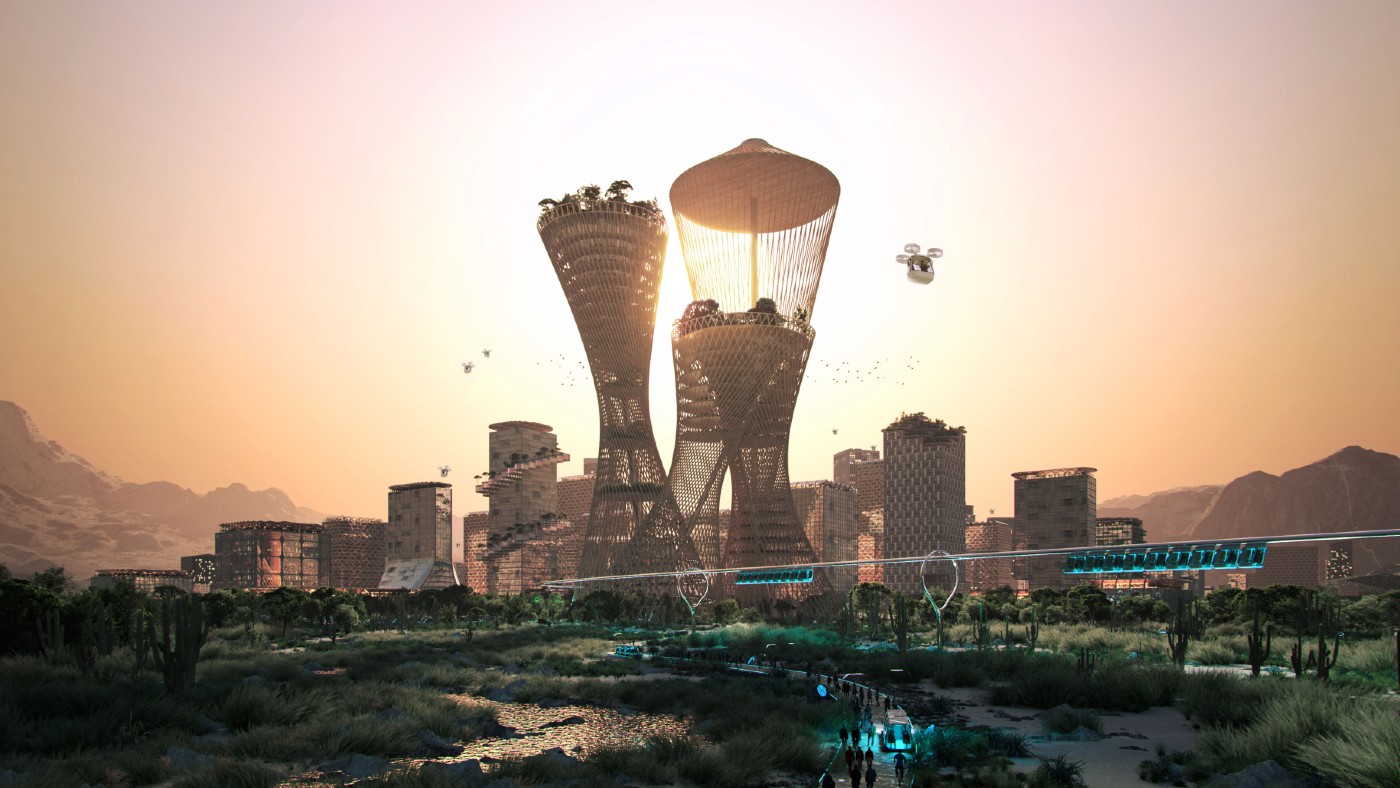
A free daily email with the biggest news stories of the day – and the best features from TheWeek.com
You are now subscribed
Your newsletter sign-up was successful
Around the world, new cities are being built from scratch at an unprecedented rate. This is, in part, simply because population growth and migration are feeding urbanisation. But it’s also partly because the problems facing older cities – pollution, climate change, housing shortages, inequality, congestion – now appear particularly acute.
The US billionaire Marc Lore has responded with a plan for a “sustainable and equitable” metropolis for five million people in the deserts of the US southwest. Called Telosa (from the ancient Greek word telos, meaning “higher purpose”), it aims to be a city “that sets a global standard for urban living, expands human potential, and becomes a blueprint for future generations”.
What do Lore’s plans look like?
Telosa would be built to a cutting-edge sustainable design: powered by renewable sources, with a drought-resistant water system whereby fresh water is cleaned and reused. It would be a “15-minute city”, meaning residents could reach their workplaces, schools and amenities within a quarter-of-an-hour commute. Fossil-fuel-powered vehicles would be banned, with residents travelling in self-driving electric cars or on high-speed public transport instead.
The Week
Escape your echo chamber. Get the facts behind the news, plus analysis from multiple perspectives.

Sign up for The Week's Free Newsletters
From our morning news briefing to a weekly Good News Newsletter, get the best of The Week delivered directly to your inbox.
From our morning news briefing to a weekly Good News Newsletter, get the best of The Week delivered directly to your inbox.
At its centre would be a skyscraper, dubbed Equitism Tower, “a beacon for the city”, which would house aeroponic (soil-free) farms. Buildings would be covered in solar panels and greenery; residents would enjoy abundant open space. But its aims go beyond environmentalism. “We’re not just building a new city,” says Lore. “This is a new model for society.”
What is his new model for society?
Lore, a former Walmart executive who co-founded Jet.com and Diapers.com, and whose fortune is estimated at about $4bn, found himself wondering why, when the past century had seen such “incredible material progress”, so many people were still “just barely getting by”.
America’s fundamental problem, he believes, is its wealth gap, and – inspired by the work of the 19th century economist Henry George – he has concluded that this is rooted in land ownership. Society at large creates property value, but the gains accrue (unfairly, in Lore’s view) only to the property owners.
Telosa would solve this. Anyone would be able to build homes and sell them, but the city itself would retain ownership of the underlying land. If the city were to thrive, the value of that land would increase: Lore predicts that it could earn $50bn a year from investments and rent. That money would be spent on Scandinavian-style social services, so that citizens have equal access to healthcare, good schools, parks and public transport. Lore has dubbed this model “equitism”, which he calls a “reformed version” of capitalism.
A free daily email with the biggest news stories of the day – and the best features from TheWeek.com
Where might the city be built?
Planners are currently still searching for a site – but the idea is to build Telosa on cheap desert land in Nevada, Utah or Arizona. The first phase of construction, accommodating 50,000 residents by 2030, would take up a relatively modest 1,500 acres; but within 40 years, the city’s backers hope it would span 150,000 acres, housing five million people (with a population density of about 33 people per acre; on a par with San Francisco).
Lore says that Telosa’s first 50,000 residents will be carefully selected. He compares it to a university applications system, and promises that its population will be “diverse”, drawn from a variety of income levels, races, religions and sexual orientations, adding that it will be welcoming to both “Democrats and Republicans”.
How would it be funded?
A vast amount of money would be required: the first phase of work would cost some $25bn, and the whole project would be expected to cost in excess of $400bn. Funding, say the project’s organisers, would be generated from “various sources”, including private investors, philanthropists, federal and state grants, and economic development subsidies.
Lore also plans to foot some of the bill from his own pocket, using expected returns on his start-up investments, including an air-taxi company. The challenges for the project are, however, immense, and it’s not difficult to imagine budgets spiralling.
What are those challenges?
One of the biggest is the supply of water. Last year, a study in the Nature Climate Change journal confirmed that southwest USA is at its driest in at least 1,200 years, thanks to a 22-year “mega-drought”. Lore admits that a viable supply of water would require innovation, money and political resolve (and he could opt for a site in the less drought-ridden Appalachia region instead).
More generally, creating new cities from scratch is less sustainable than building on existing urban centres; particularly if it’s a city in the middle of the desert, with food and other supplies likely transported in from afar. “The idea of supporting a million people on worthless land is a tough hill to climb,” says Ellen Dunham-Jones, an urban design professor at Georgia Tech.
Is this just a pipe dream?
There’s no doubt that Lore is serious about his project. He has commissioned Bjarke Ingels, one of the world’s most famous architects, to be Telosa’s chief architectural designer; he has assembled a 50-strong team, including planners, urban historians, economists, designers and sustainability experts.
On the other hand, he has not yet secured land or water rights. The city’s constitution is as yet unwritten; his economic model is unproven. No one has been convinced to move from a real city to his project. Telosa has certainly attracted plenty of scathing criticism. It has been described as a “greenwashed Las Vegas”, and as a typical Silicon Valley fantasy.
For now, Telosa looks suspiciously like another billionaire’s vanity project. That said, haven’t many of those become a reality in recent years?
-
 The ‘ravenous’ demand for Cornish minerals
The ‘ravenous’ demand for Cornish mineralsUnder the Radar Growing need for critical minerals to power tech has intensified ‘appetite’ for lithium, which could be a ‘huge boon’ for local economy
-
 Why are election experts taking Trump’s midterm threats seriously?
Why are election experts taking Trump’s midterm threats seriously?IN THE SPOTLIGHT As the president muses about polling place deployments and a centralized electoral system aimed at one-party control, lawmakers are taking this administration at its word
-
 ‘Restaurateurs have become millionaires’
‘Restaurateurs have become millionaires’Instant Opinion Opinion, comment and editorials of the day
-
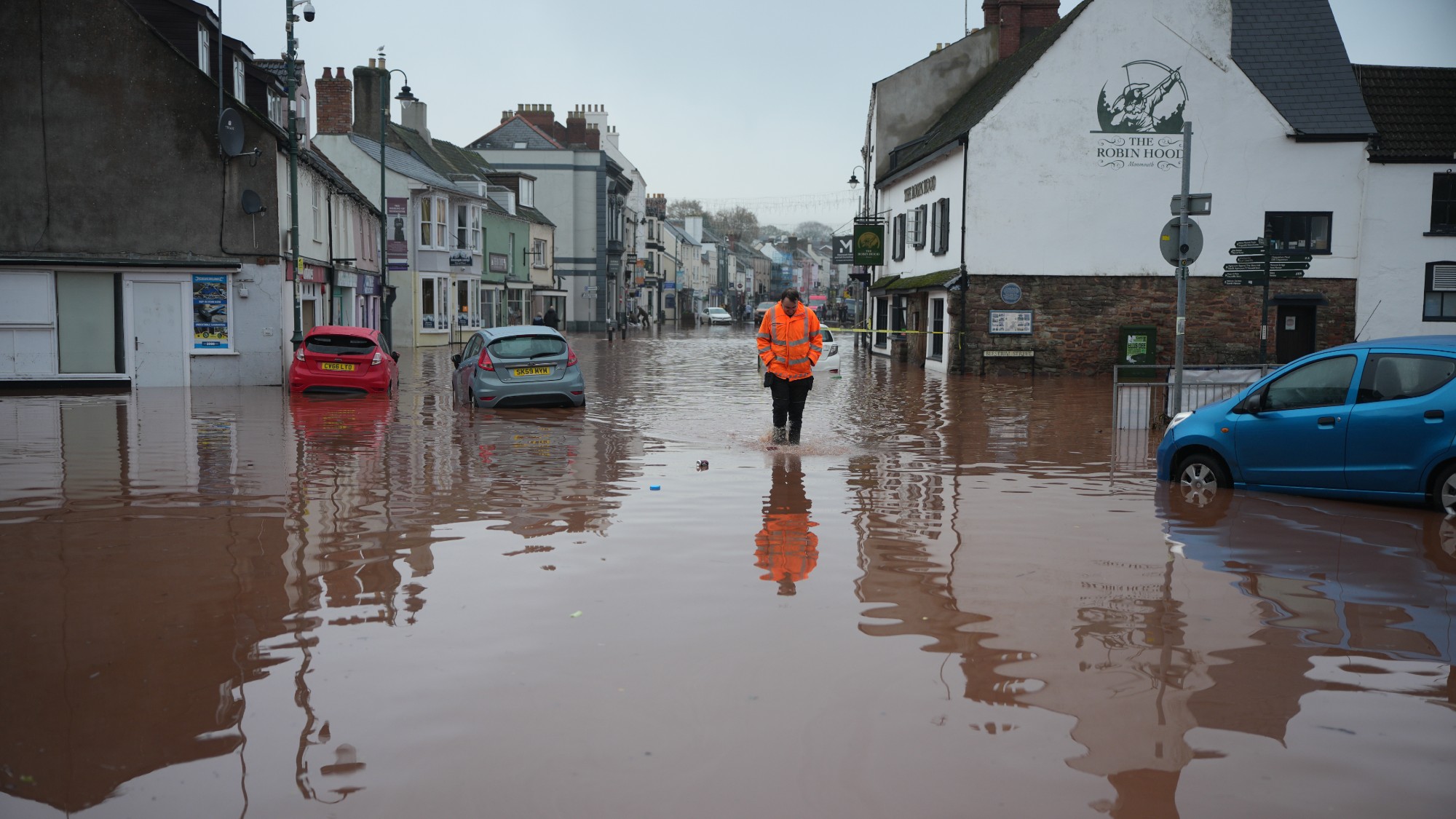 How will climate change affect the UK?
How will climate change affect the UK?The Explainer Met Office projections show the UK getting substantially warmer and wetter – with more extreme weather events
-
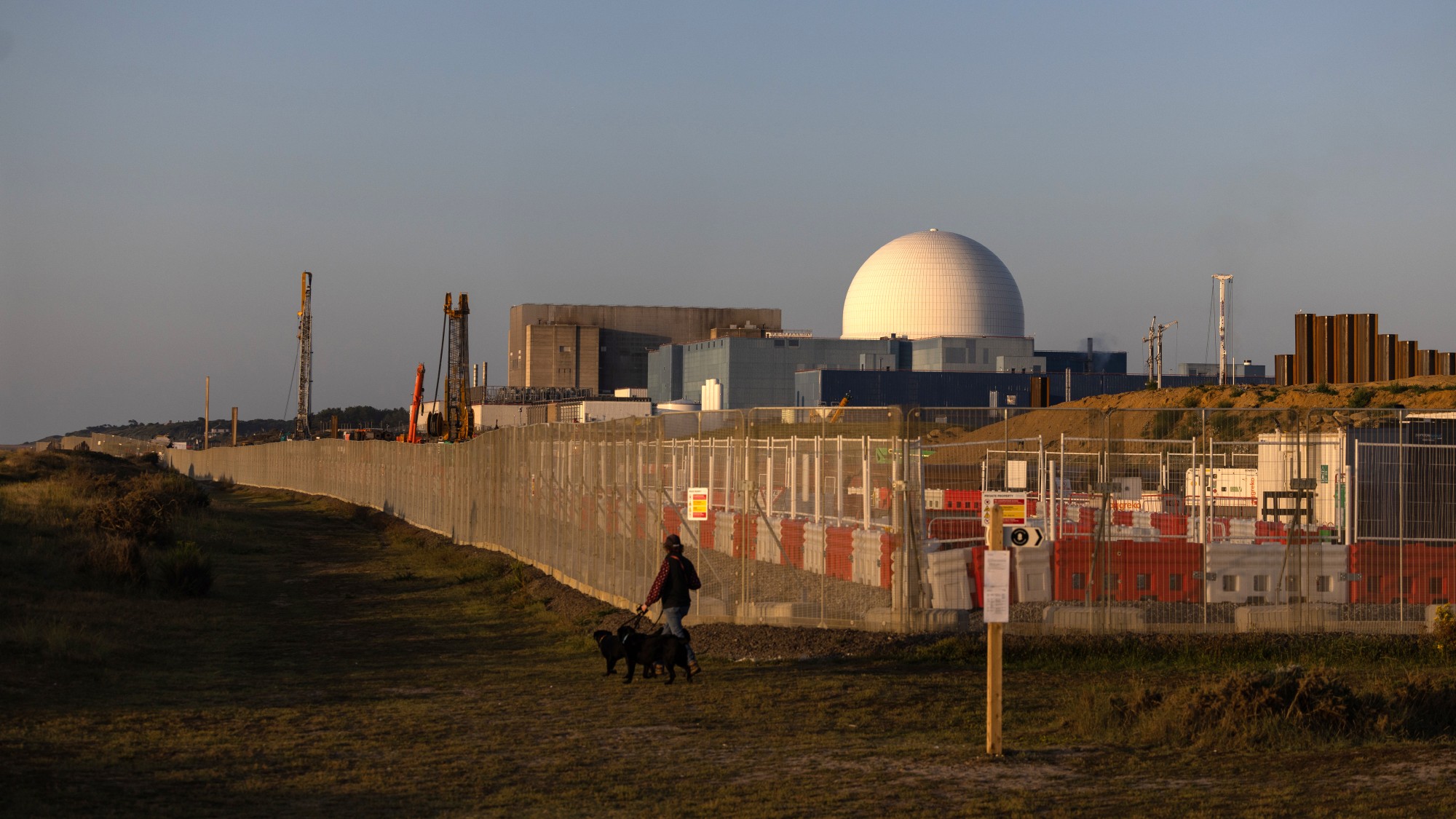 Are we entering a ‘golden age’ of nuclear power?
Are we entering a ‘golden age’ of nuclear power?The Explainer The government is promising to ‘fire up nuclear power’. Why, and how?
-
 Europe's heatwave: the new front line of climate change
Europe's heatwave: the new front line of climate changeIn the Spotlight How will the continent adapt to 'bearing the brunt of climate change'?
-
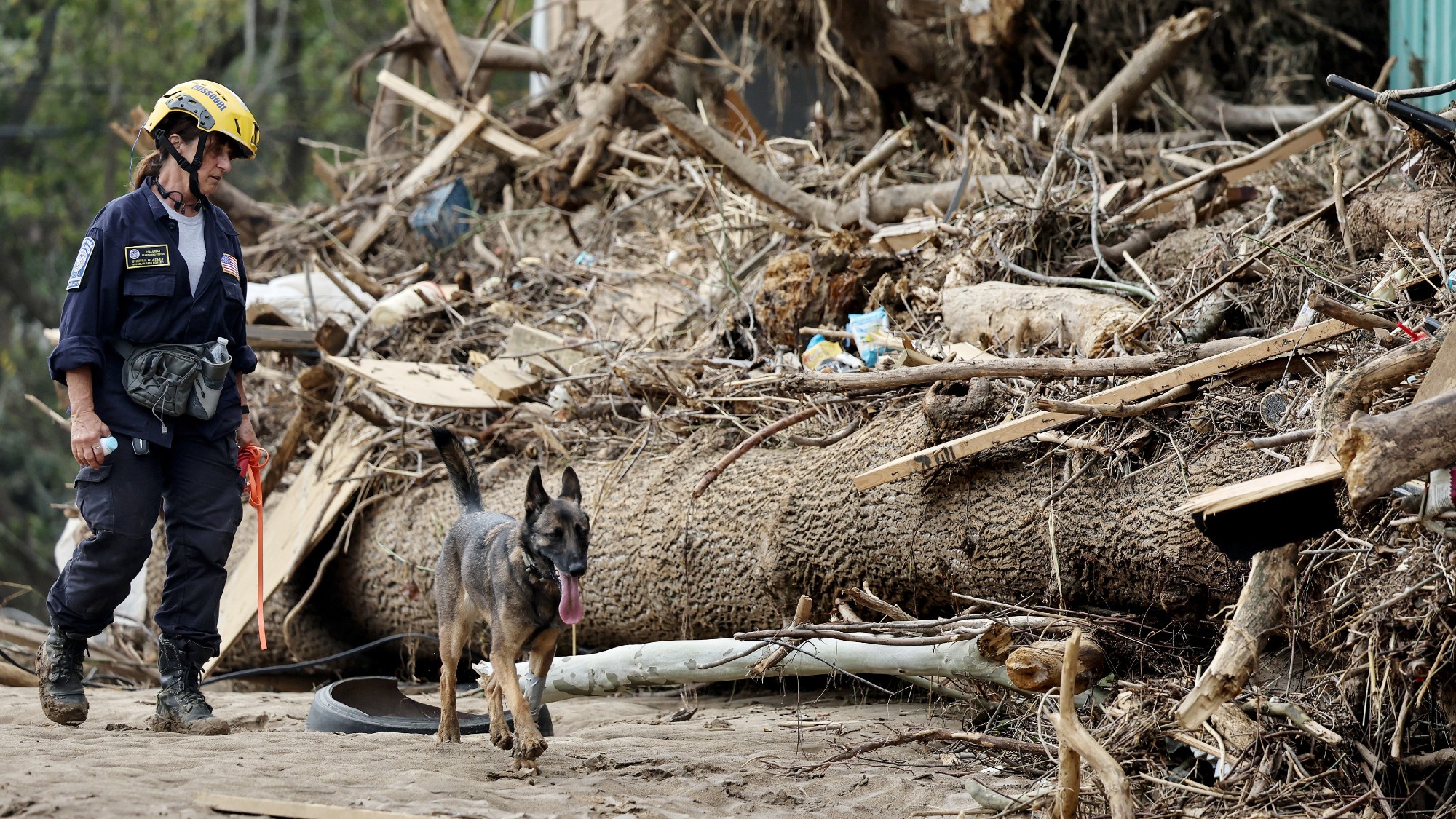 Storm warning: Will a shrunken FEMA and NOAA be able to respond?
Storm warning: Will a shrunken FEMA and NOAA be able to respond?Feature The U.S. is headed for an intense hurricane season. Will a shrunken FEMA and NOAA be able to respond?
-
 Seven wild discoveries about animals in 2025
Seven wild discoveries about animals in 2025In depth Mice have Good Samaritan tendencies and gulls work in gangs
-
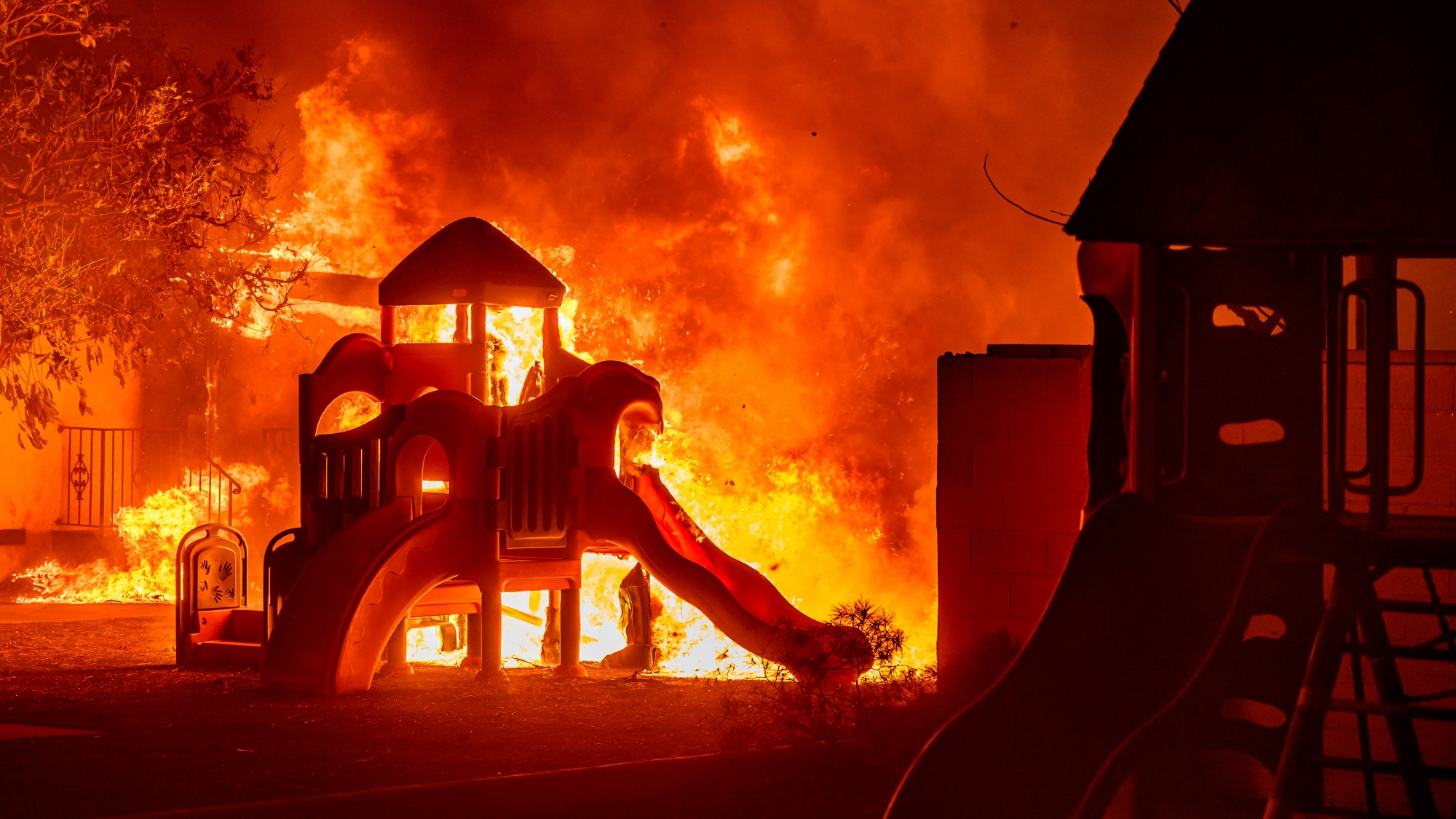 Should Los Angeles rebuild its fire-prone neighbourhoods?
Should Los Angeles rebuild its fire-prone neighbourhoods?Talking Point The latest devastating wildfires must be a wake-up call for Los Angels to 'move away from fire-prone suburban sprawl'
-
 England's great parakeet invasion
England's great parakeet invasionThe Explainer How did a parrot from the Himalayas become a common sight in southeast England?
-
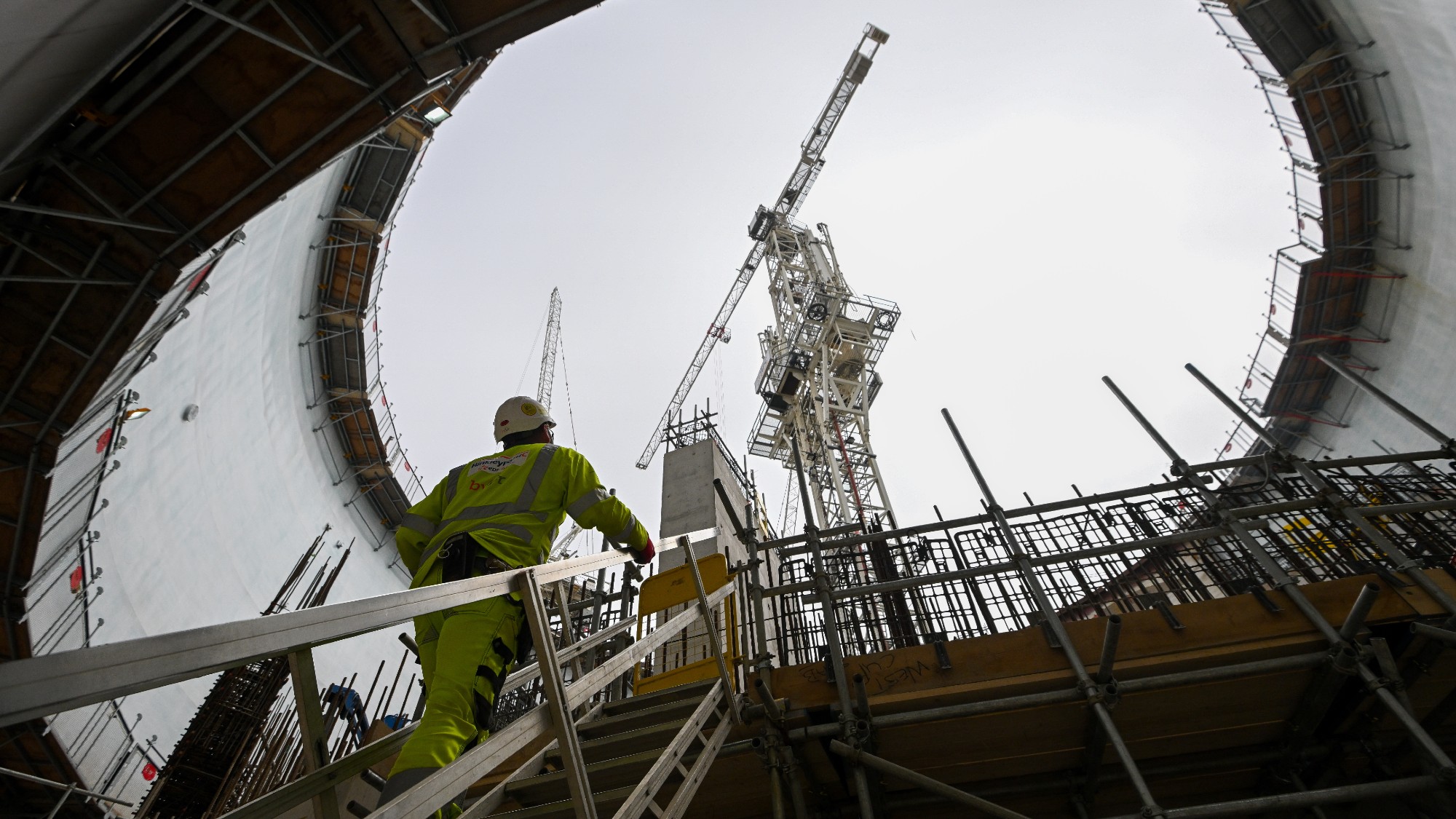 Decarbonising the national grid
Decarbonising the national gridThe Explainer In theory, Britain's electricity grid will be carbon neutral by 2035. What will that involve? Is it even possible?